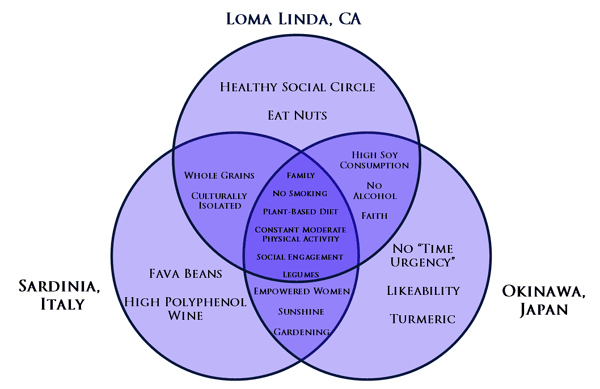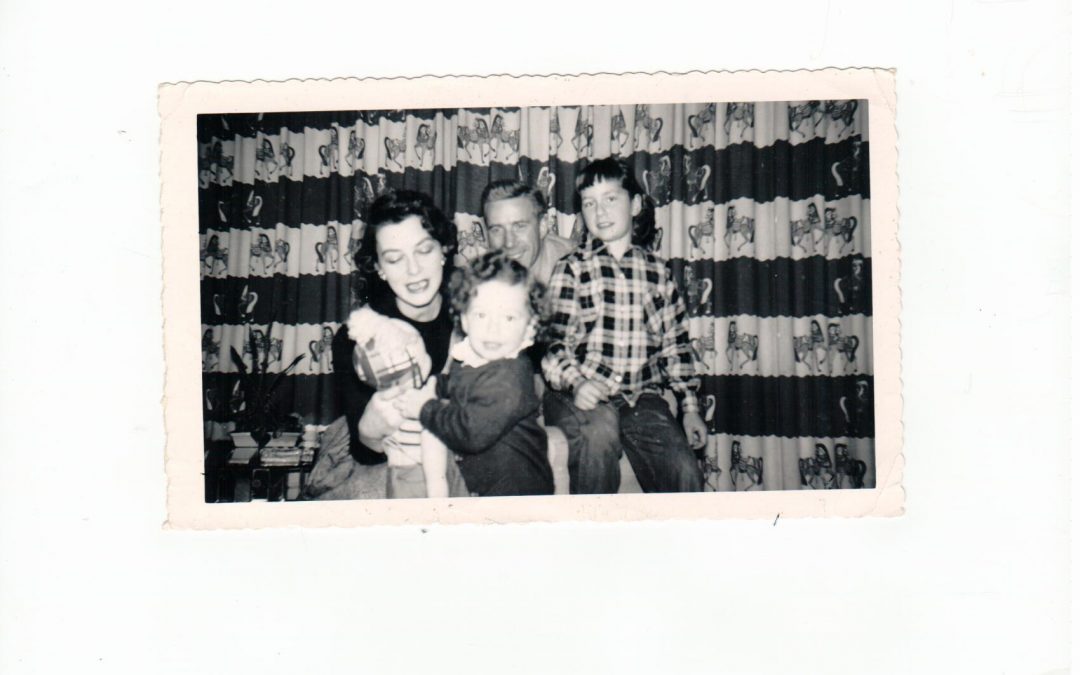
by Mindy Fried | Jun 10, 2016 | aging, connections with people, engaged aging, family, feminism, gender, health care, House Un-American Activities Committee, making choices, resiliency, theatre, Uncategorized, work and family balance
In this interview, Gayle Sulik, Founder of the Breast Cancer Consortium and Co-Founder of Feminist Reflections, talks with Mindy about her new book, Caring for Red: A Daughter’s Memoir (Vanderbilt University Press, forthcoming, Summer, 2016).
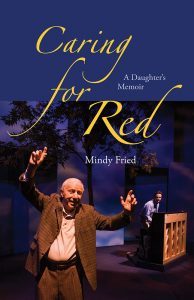 GAYLE: Mindy Fried, your new book Caring for Red tells a story of you and your sister taking care of your 97-old father in the last year of his life in an assisted living facility. Before we talk about your experience caring for your dad, Manny, tell me a little about him. Who was this colorful character? After all, he earned the nickname “Red.” Sounds fiery to me!
GAYLE: Mindy Fried, your new book Caring for Red tells a story of you and your sister taking care of your 97-old father in the last year of his life in an assisted living facility. Before we talk about your experience caring for your dad, Manny, tell me a little about him. Who was this colorful character? After all, he earned the nickname “Red.” Sounds fiery to me!
MINDY: My father was a person with many lives. As a young man, he was a labor organizer for the United Electrical Workers union where he organized factory workers. That was when industrial labor was still predominantly based in the US, and not in third world countries where labor is cheaper. At some point, he joined the Communist Party. I’m not sure how active he was or for how long, but certainly at that time, being considered a “Communist” was tantamount to being a terrorist in our current political climate. In1954, when I was around 4 years old, he was subpoenaed to testify in front of the House Un-American Activities Committee (HUAC), a very traumatic experience for him, and for my whole family. He was “blacklisted”, meaning that when he applied for jobs, he was turned away. Eventually, he was hired by a Canadian company where he sold life insurance for around 15 years. That’s the kind of work he did through much of my childhood. But he was also writing plays based on his experience as a labor organizer, and he returned to the theatre as an actor, something he had done years before. When I was a teenager in the 1960s, he was subpoenaed by HUAC again. That was tough, but times had changed quite a bit and the ramifications weren’t quite as dire as they were the first time around. He ended up going back to school when he was in his 50s. Really impressive, since he had only one year of college under his belt. He went straight from finishing an undergraduate degree to working on a Ph.D. in English. His final career was as an English professor at SUNY Buffalo State College. You might say that nothing kept this guy down. He was a great role model in that sense.
GAYLE: How did your family survive the impact of the McCarthy period?
MINDY: I grew up with two people who were angry with each other often, but it was quiet anger. That was hard. I was lucky to have a best friend who moved in down the street from me when I was 5 years old, and her family basically adopted me. She liked my house because it was quiet, and I liked hers because it was lively and warm and loving. She became my “non-bio” sister, as we say; we’re still close today. Her parents became surrogate parents, and I am ever-grateful for that. They were just very attentive; my parents were often distracted. It was great to have another family a few doors down the street. That was one way I coped. But as a family, we also believed that my father made the right choices, in how he challenged HUAC, and continued to stand up for his beliefs. Having a sense of doing the right thing goes a long way.
GAYLE: Another name associated with Manny Fried, is “Morrie.” Six years before your father died, he played the character MORRIE in a play called Tuesdays with Morrie. As the story goes, a University graduate visits his former mentor, a sociologist who is slowly dying of a progressive disease. You write that your father inhabited that role fully, and that it helped to bring you closer together. Tell me why.
Well first of all, it was a big deal to play Morrie, not only because it was a great opportunity for my father, but also because he got to perform at the Studio Arena Theater, which had blacklisted him for many years. For me, the other exciting thing about him getting this role was that Morrie was a sociologist in my own department at Brandeis University. I knew Morrie, and the moment that my dad got the part, I saw it as an opportunity for the two of us to connect around his preparation and performance. I introduced him to Gordie Fellman, one of Morrie’s closest friends and colleagues from Brandeis. And I introduced him to a couple of Buddhists and sociologists who called themselves “Monday’s with Morrie”, as opposed to Tuesdays with Morrie (upon which the book and play were based). We also watched the Frontline TV series that Ted Koppel produced about Morrie, where Koppel interviewed him over the period of time as he was dying of ALS. When my dad came to visit me, he would have these meetings, and he would run his lines with me, and he would practice a grapevine dance from the play in my narrow hallway. It was just this really sweet thing that we connected around, and then obviously I always went to see him when he acted, so it was great to see him in the play, and he really did a beautiful job. People are always kind of amazed when they see old people function in any way, but seeing him excel at inhabiting this character – I think it was a really powerful experience for the audience and he pulled it off; he did a great job.
GAYLE: In your book, you describe a father who was loving – someone you felt deeply close with – but also a man who was full of himself. Did you feel resentment about taking care of him in this last year of his life?
MINDY: Well I think that this a really important question because as adult children, many of us have mixed feelings about our parents. The answer is “no”, I didn’t resent him. But it took me many years to understand him, to find equal footing with him, to find my voice with him, since he was a forceful speaker, sometimes controlling, and sometimes discounting of opinions that differed from his. He once told me that if I wasn’t sure about something, just guess, and that 99% of the time I’d be right. I was in my 30s when he gave me this advice, and by then I had his “number” and realized that this was sort of ridiculous. But he actually believed he was right most of the time! That said, I had deep respect for him and for his values and choices in life. He centered my world, for many years. In “exchange theory”, as it applies to families and relationships, the notion is that parents care for their children in one period of time, and later in life, when elder parents need support, children care for their parents. When it came time to care for my father, I did it with all my heart.
GAYLE: How did the father-daughter relationship change as Manny aged?
MINDY: My father and I were very close. Like most people, he was a flawed human being. He made serious choices in his life that impacted our family. But I had a deep respect for him, and we had a lot in common politically. For me, being part of the Women’s Movement in the 70s helped me better understand that despite being a good guy who was committed to social justice, he was pretty “old school”. I got frustrated with what a poor listener he was, and how I often had to fight for “air time” in conversations with him. But I did learn how to argue and debate because of him. I believe he felt I could be anyone or anything I wanted to be. And while he wasn’t comfortable “having or expressing feelings”, he was emotionally raw much of his life. That was one effect of McCarthyism on his life, and I understood that about him. Over the years, I understood enough of who he was to accept his shortcomings and his vulnerabilities and to just kind of let it go and say, “ok, here’s this person in the last bit of his life,” and to really be as fully present for him without losing myself.
GAYLE: You chronicle in your book many attempts, successful and unsuccessful, to find a place for your father to live that would meet his growing care needs AND offer the kind of life that fulfilled him. This was not easy, and sometimes your father was less than helpful. Tell me what worked, and what didn’t?
MINDY: I think one thing that worked was that I put myself in his shoes. For example, when we went and visited this super groovy retirement community that was connected to a college and he said to me, “there is absolutely no way I am going to move in there”. I imagined myself living with people that we met with, and I thought “I couldn’t do that either, this would be kind of horrible”. Not that they were bad people; it just felt foreign. These weren’t people he would choose to be friends with. I think that probably the most important thing as somebody gets older is to respect where they’re coming from. And I think it’s important to start thinking about these issues early on because you know, if you are trying to make a decision when it’s dire, the whole process of decision making is much more rife with emotion. I believe that talking about these things before you are in a crisis really makes a huge difference. And that helped us a lot.
GAYLE: Your father lived in Assisted Living for the final year of his life. Am I correct?
MINDY: Even though the book uses a one-year time frame, it was actually a year and a half that my sister and I cared for our father. It worked really well, until it didn’t. We learned what assisted living was able to provide for him as well as its limitations. Ultimately, in the last few months, he needed round the clock care. But he was able to live and die in his small apartment in assisted living. As an ethnography, Caring for Red provides a real sense of life in assisted living, the norms and values that drive human interaction, the hierarchy of staff, and the structures that define the experience within this institutional form of care that aims to provide a home-like environment.
GAYLE: Can you describe what Assisted Living is?
MINDY: Well, people think of it as kind of a hybrid health and home service, but in fact it’s really just more home than health oriented. It’s a place to live; there are regular meals; there often are activities; and staff provide services to residents – up to a point. Some assisted living facilities have medical staff; others don’t. We chose a place that had some nursing care, including medical people who delivered medications, and there was actually a doctor, a geriatrician, who came by once a week. But we had to pay for medical care because it was beyond the basic services offered. We ended up supplementing even more services in order to avoid having to send him to a nursing home. But that’s a longer story…
GAYLE: You were also a long-distance caregiver. How did you manage your father’s care from afar?
MINDY: I was lucky that I had a sister to do this with, so between the two of us we shared the caregiving work. We visited every weekend; we talked on the phone all the time; and we were on the phone constantly with caregivers, as well as his friends to help arrange his social life.
GAYLE: What do you hope for your book? How do you hope people will be affected by reading it?
MINDY: I guess if nothing else, I’d like it to contribute to a more open conversation about the trials and tribulations of caregiving work. While Caring for Red includes references to scholarly work on caregiving, I will be lucky if people feel more of a heart connection to the issues, particularly those people who are caring for an elder parent. We all have a range of feelings towards the people who cared for us when we were young. It’s important to recognize that there are a lot of people who love their parents; there are some people who hate their parents; and there are some people who have mixed feelings about their parents. Taking care of them in those final throes of life is jarring; AND it’s an opportunity to reconcile unresolved feelings; it’s an opportunity to treat elder parents with dignity and to make that last piece of life worth living. It’s also something that we’re all going to face at some point so I think that how we care for our parents is also a role model for how the younger people around us can – and hopefully will – care for us.
There’s no ultimate how-to book on caring for our parents. We all learn by what we see around us. So I’d like a dialogue to be stimulated about these issues. Because it’s very hard work – unpaid caregiving labor – and people don’t talk about this shit because it’s like, ‘oh it’s too depressing’, but hey, it’s life! We’re all going to die, you know, and somebody’s hopefully going to take care of us, so let’s think about how we want that to look within families and within society.
I also hope that academics will use this book in classes on aging, on death and dying, and on anything related to the life course. Moreover, Caring for Red is an ethnography, “set” in assisted living, so I hope it will be used in methods classes. And finally, for those who take interest in the history of facism and particularly, in the McCarthy era, the book presents quite a story, which I believe we must not lose.
GAYLE: Thank you, Mindy Fried. The deeply moving and insightful memoir – “Caring for Red”- is available for pre-order on Amazon.com.
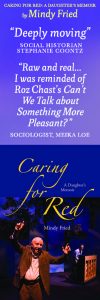
by Mindy Fried | Feb 15, 2012 | blacklisted, education, House Un-American Activities Committee, HUAC, organizing, prejudice, protest, resiliency, social justice

I was on the treadmill at the gym the other day, frantically trying to undo a day of sitting and staring at my computer, when a casual “gym friend” joined me on an adjacent treadmill. She noticed that I hadn’t been there lately, and wanted to know why. I don’t know her well and could have manufactured some story, but she had always been so warm and friendly, so I decided to tell her the truth, that my 97-year-old dad had just passed away. Her response was immediate and kind, as she empathized with how hard it is to lose a parent. Then she looked up to the ceiling of the gym, and as I followed her gaze, wondering what had stolen her attention, she said in a reassuring voice that he was in heaven now, and then looked back at me with a smile. Not knowing how to respond, I smiled wanly and increased the incline on the treadmill. I wish I believed that he was in heaven and as my partner says, I hope to be happily surprised…

She then asked about the funeral, and I explained that we had it right away because I’m Jewish and that’s what we do… Apparently, distracted by the realization that I was a Jew, she then said that she had many arguments with her Catholic friends who believed that “the Jews killed Christ.” (Wait a minute – where did that lovely empathy go?!) Just as I was thinking about an exit strategy, she came back to earth and said, “It’s crazy that people of all faiths don’t get along.” And as I was mentally excusing her for that detour, she added, “except for the Muslims”. Again, I was hooked, and as I looked at her, I know I must have appeared surprised because she looked back at me with a slightly uncomfortable smile. And then went on to say that she worried that Muslims – presumably all Muslims – were terrorists. Wasn’t it time for me to leave the cardio area and work on my abs or something? But no, I couldn’t leave now, as this was a “teachable moment.”
I said that the media would like us to believe that all Muslims are terrorists, but most Muslims are peaceful people. And she asked me, didn’t I think that the “Koran incites Muslims to commit terrorist acts?” I replied with certainty, with whatever knowledge I have accumulated since 9/11, that that was untrue.
This really bugged me, a kind-hearted, well-meaning person swallowing Fox News whole. And it really upset me that the media is so compelling that good people can believe such nonsense.
I learned the hard way from my father not to run away from difficult conversations and to stand up for my beliefs. In the 1950s, and again in the 1960s, he was called before the Senate House of Un-American Activities (HUAC) to answer the now-infamous question, “Are you now or have you ever been a member of the Communist Party (CP) of the United States?”. The first time he was subpoenaed before the committee, he challenged its legality. And the second time, he used the first amendment, declaring his right to freedom of speech. As a result of the first committee hearing, he was “blacklisted” from work in the U.S., and ultimately sold life insurance for 15 years through a Canadian firm. He also became a prolific playwright, writing about his experiences within the labor movement in attempt to give voice to working people.

It was not until I was well into my 30s that my father admitted to me that he had been a member of the CP, but had wanted to protect me in case the FBI approached me with that question. That might seem like crazy-thinking, but the FBI actually did follow my father – and consequently, our family – for half a decade, employing agents to observe meetings where my father spoke, reviewing documents he wrote, including plays and memoirs, and even observing the fall-out we experienced in our family, as a result of being persecuted by the government.
When I left for college, my father warned me that I might be approached by an FBI agent, asking about his political activities. At the time, that seemed ridiculous, the product of narcissistic, paranoid thinking. But in my junior year, a guy from the Dance Club – in which I was very active – began asking me questions about my dad. Through some research, I discovered that he had been working out in California, trying to sabotage the Cesar Chavez grape boycott. I realized that maybe my father’s paranoia wasn’t so crazy after all. Using the Freedom of Information Act, my father ultimately received roughly 5,000 pages of FBI notes, with many of the words redacted (meaning crossed-out!), supposedly to “protect” the identity of the agent who was following him. I spent hours pouring through these files a number of years ago, and was stunned to read that the FBI knew that my sister and I were being ostracized by our so-called friends because of my father’s political beliefs, and that my mother lost many dear friends and family members to the fears they had about being associated with “a Communist family”. You can read more about this in Colin Dabkowski’s article in the Buffalo News:http://www.buffalonews.com/spotlight/article727714.ece
After my mother died, my father told me another reason why he left the Communist Party. He didn’t want that admission to have negative repercussions on his CP colleagues and friends. He was a working class Jewish man who had strong convictions and was loyal to his friends, risking a lot to stay true to them. He wasn’t trying to overthrow the government, although he was challenging an economic system that, even more so today, creates haves and have-nots. He was simply a very effective labor organizer who mobilized workers around issues of wages and benefits and fair treatment on the job. In doing this work, he was simply executing his first amendment rights to speak out about his beliefs. I believe that the world was a better place because of people like him.
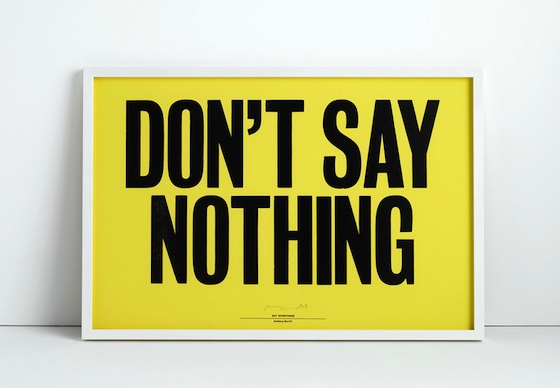
So what to say to my friend at the gym, who seems to have drunk the kool-aid of misinformation in the right-wing media? What to say to many of my fellow Americans who are now stumped about whether to support a wealthy businessman for President whose personal and political interests are intertwined or an evangelical politician who would happily turn our country into the United Christian States?
There are many ways to fight disinformation and work for a better, more equitable world, through organizing, writing, teaching, and just speaking to friends, colleagues and acquaintances. And we must not be afraid to do so.
by Mindy Fried | Jan 23, 2012 | aging, Blue Zones, engaged aging, family, House Un-American Activities Committee, HUAC, immigrants, loss, resiliency
The great thing about getting older is that you don’t lose all the other ages you’ve been.
Madeleine L’Engle
It is nearly one year ago that my father passed away. On that day, the headline of the Buffalo News proclaimed, “He was a man with a purpose”, with a smaller headline saying “Manny Fried, a guiding presence to area’s actors, writers and social activists, dies at 97.”
Anyone who observed my father as he surpassed the 80-year-old mark, then the 90-year-old mark, and eventually the 97-year-old mark wondered what kept him “so young”. At age 80, he was still jogging. At 90, he was still acting, writing and going to political meetings. And at 95, he performed a one-man autobiographical show, sitting on stage at a reputable Buffalo, New York theater, telling stories about his life with passion and vigor, for over a month of weekend performances. As heirs to 50% of our father’s genes, my sister and I hope that we can only be so lucky! The other side of the family is gifted with tons of creativity, but unfortunately rifled with bi-polar disease and plenty of medical problems. The former we welcome; the latter, we rationalize were the result of poor “lifestyle choices”.

What is it that keeps people ticking for a long time? My father claimed it was a function of good genes from his hearty immigrant parents who lived until they were nearly 100. That, coupled with eating judiciously (he had a sign on his fridge that said “EAT LESS”!), consistent exercise, and staying involved intellectually… He had a rough life trajectory, but developed a resilience he absorbed from his father, who told him, “When you fall down, you get up.” In the 1940s and ’50s, as a labor organizer for the radical Electrical Workers union, he was subpoenaed by the House Un-American Activities Committee. Rather than “taking the 5th”, and saying that he refused to speak on the grounds that anything he said could be used against him, he refused to respond to the Committee’s questions, challenging the right of the Committee to exist. He was unable to find work in the U.S., and ultimately worked for a Canadian company, and also wrote plays about his life experience.
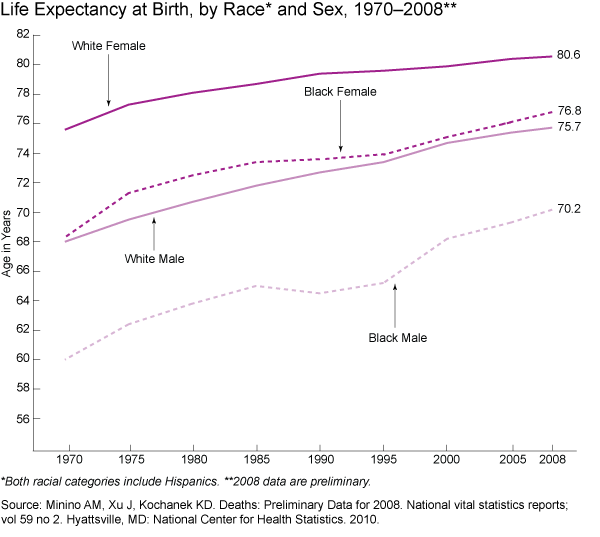
As I move closer to what we define as “young old age” in our society, I am recognizing the elements of my father’s life that continued to fuel his sense of purpose. In fact, just about everything he did mirrors much of the research on aging and longevity as a combination of genetics and lifestyle choices. According to some twin studies, around 20-30% of an individual’s lifespan is related to genes, and the rest is due to individual behaviors and environmental factors which can be modified. Other studies demonstrate that some people have fewer choices than others, particularly given the greater environmental pollution in poorer neighborhoods, and differential access to quality health care for poor people and people of color.
Dan Buettner, in his Blue Zone project, traveled around the world looking for key areas that foster centenarians, people who lived to be 100 or more. He wanted to know what factors contributed to a long life.
Beuttner and his team spent seven years studying four “Blue Zones” where they met people who were aging in an extraordinary way. They interviewed dozens of centenarians, worked with local medical experts, and studied local cultures and lifestyles. Buettner said that each Blue Zone revealed its own recipe for longevity, but many of the fundamental ingredients were the same. Ultimately, he identified nine common lessons of living longer, which he felt were deeply embedded in the cultures they studied.

He found that the Italian island of Sardinia has the highest number of male centenarians in the world; Okinawa, Japan has the longest disability-free life expectancy; and in Loma Linda, Calif., a community of Seventh Day Adventists has a life expectancy that’s around ten years more than that of other Americans. What contributes to these long-living elders? Buettner says that first off, they eat a healthy diet and they get “natural” exercise, where physical activity – like walking around the community or climbing up and down hills – is a natural part of their daily lives.
They remain socially engaged in their communities, whether it be in a village or with a group of strong friends and family in which they are valued. And these centenarians continue to find meaning or purpose in their lives. Buettner describes 104-year-old Giovanni Sannai of Sardinia, saying,
“He was out chopping wood at 9 in the morning…He started his day with a glass of wine and there was a steady parade of people coming by to ask his advice. That’s one of the characteristics of the Sardinian Blue Zone — the older you get, the more celebrated you are.”
For those of us who don’t live on an island, or in a culture that reveres old age, how will we shape our lives moving forward, to maximize healthy aging? It is not “natural” for older people to disengage with their lives; in fact, contemporary aging research provides evidence of the importance of being involved in activities that inspire interest or passion, whether it be with one’s family and friends, in volunteering to help others, or in any endeavor that creates a sense of purpose and brings older people in contact with others.
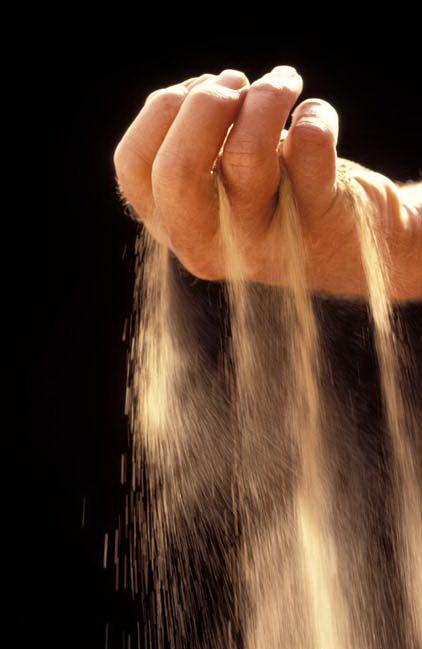
Clearly, one of the hardest things about growing older is loss – loss of friends and partners whom we outlive. In observing my father, I saw that when many of his contemporaries had passed away, he continued to be surrounded by younger people of all ages who were both inspired by him, and revered him as the “elder” in Buffalo’s labor movement and theater community. I believe that this buffered the pain of overwhelming loss, and provided a critical community of friends and colleagues who sustained him for many years.
How can we create a sense of community – through family and friends, or a social or political group, or an artistic endeavor – that engages us, provides support when needed, and challenges us intellectually?
Aging is not lost youth but a new stage of opportunity and strength.
Betty Friedan
Age is an issue of mind over matter. If you don’t mind, it doesn’t matter.
Mark Twain
I was always taught to respect my elders and I’ve now reached the age when I don’t have anybody to respect.
George Burns

 GAYLE: Mindy Fried, your new book Caring for Red tells a story of you and your sister taking care of your 97-old father in the last year of his life in an assisted living facility. Before we talk about your experience caring for your dad, Manny, tell me a little about him. Who was this colorful character? After all, he earned the nickname “Red.” Sounds fiery to me!
GAYLE: Mindy Fried, your new book Caring for Red tells a story of you and your sister taking care of your 97-old father in the last year of his life in an assisted living facility. Before we talk about your experience caring for your dad, Manny, tell me a little about him. Who was this colorful character? After all, he earned the nickname “Red.” Sounds fiery to me!










